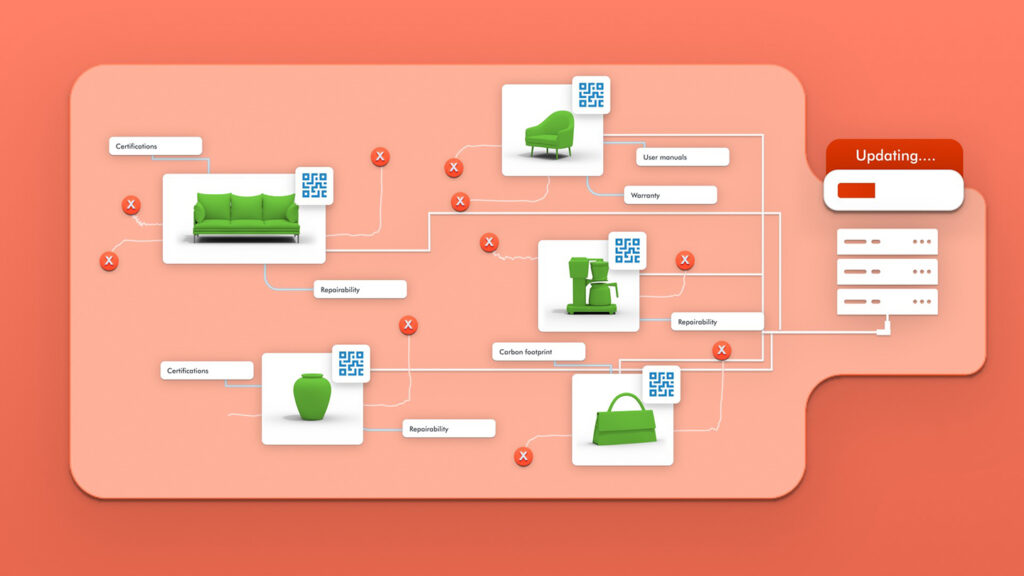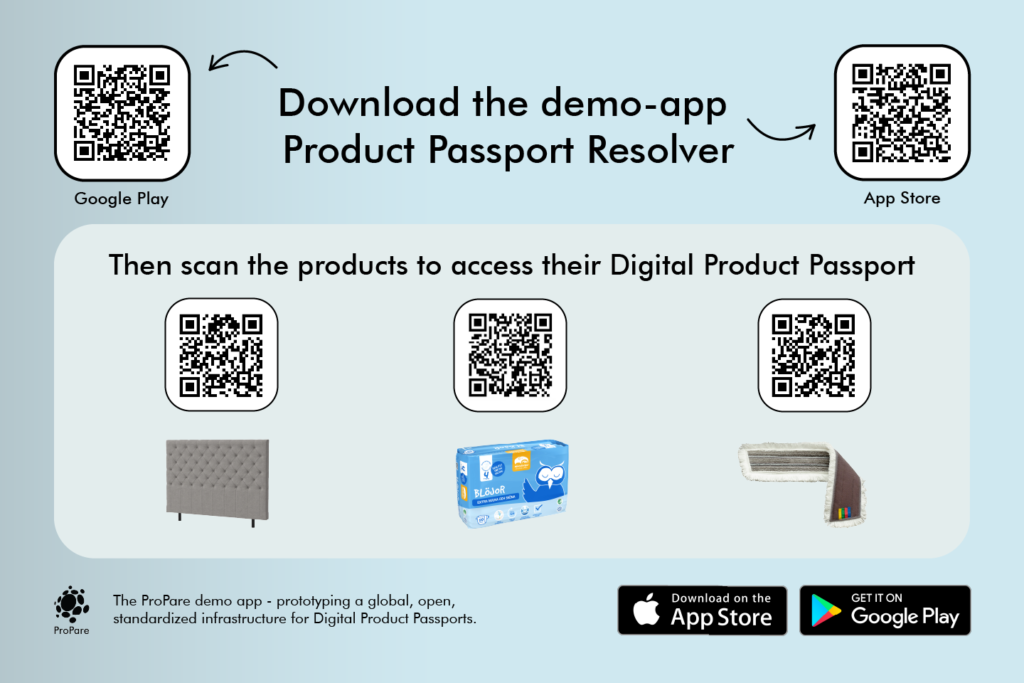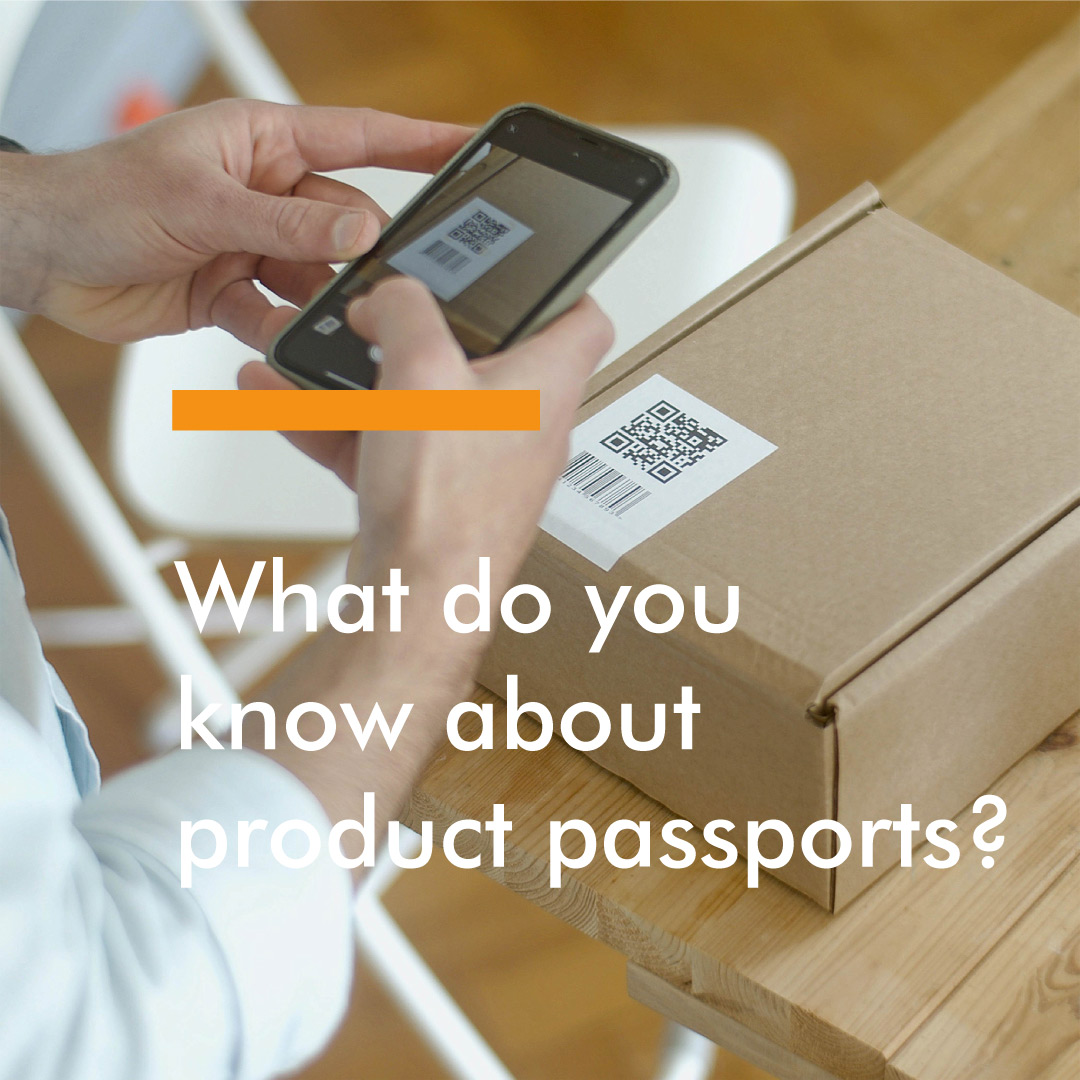Digital Product Passports – benefitting companies at the forefront
The upcoming EU legislation Ecodesign for Sustainable Products Regulation (ESPR) will require most products on the European market to have a Digital Product Passport (DPP). DPP will provide data on product content and sustainability performance in real-time, throughout the product’s life cycle. DPPs are crucial for a sustainable transition and will benefit companies that want to inspire and enable their customers to make more sustainable choices. Through an open, global, competition-neutral, and standardized infrastructure for product passports, companies can contribute to more sustainable production and consumption with increased circularity, transparency, and traceability. Thereby, we together take important steps towards the fulfilment of Agenda 2030.

Sustainable Business
By making sustainability data easily accessible in real-time, customers and buyers are guided to make sustainable and well-informed choices in-store and throughout the product’s life cycle. This can spark sustainable product and business development, as well as build customer loyalty and trust. DPP can also help future-proof businesses by creating improved conditions for circular business development. With increased transparency throughout the value chain, information about the product and its constituent items during the entire life cycle is improved. And with easy access to customer purchase and usage data for products, companies can learn more about the product’s life cycle, and create even better products meeting the customer needs of the future.

Challenges & Risks
With the right implementation, Digital Product Passports will contribute to increased resource efficiency and circularity. However, there are risks to avoid for a successful implementation. One such is the use of centralized databases which typically store copies of data that easily become outdated, leading to poor data quality, and can leave professional buyers with an information deficit that can distort competition. Another risk is the use of different data-sharing standards, which can lead to systems not being able to communicate with each other, with transparency and traceability being lost. Locked IT solutions not using global standards can also force brand owners to buy DPP services from a certain provider, or even from multiple different companies.
The ProPare Solution
The ProPare prototype shows how a global, open, competition-neutral infrastructure for Digital Product Passports could work in practice, demonstrating how companies can respond to the EU requirements vis-à-vis authorities, but also towards consumers. Such infrastructure allows companies to provide all stakeholders with reliable real-time data directly at the point of purchase or at any time during the product life cycle. By using existing technology in a new way and using decentralized data sharing, the prototype avoids cost-driving large databases and brand owners still retain control over what data is presented in the DPP.
The ProPare project has proven that it works for third-party certifications using the Nordic Swan Ecolabel as an example, but it can be used to link all types of data to a product, no matter the user, industry, or product category.

Take Action
Future-proof your business – start preparing now for the Digital Product Passports!
- Make Digital Product Passports a Competitive Advantage: Find out how DPPs will affect customers and businesses, as well as products and services.
- Make the Right Data Available: The EU Legislation will decide on a minimum level of data to share, but to maximize the benefits for business and for the sustainable transition, start mapping out what type of data is “must, need, nice” to communicate in the Digital Product Passport.
- Test on a Small Scale: Conduct a pilot project to test how to share product data with customers, businesses, and governments. Make sure to choose a solution allowing to effectively share relevant information with all target groups.
- Influence the Standards: Contact a standardization organization to be able to influence how the standards, infrastructure, and solutions for Digital Product Passports are to be designed.
The ProPare Project
The ProPare project was carried out in broad collaboration between non-profit actors Axfoundation, Ecolabelling Sweden AB, GS1 Sweden and the Swedish Trade Federation, as well as trading companies Ahlsell, Dagab, Mio and technology developer Blue Cromos. Read more about the ProPare project.
FAQ
What is a Digital Product Passport? Will the law apply to all products? What does a “global and competition-neutral standard’ mean? How does a resolver work? The FAQ provides quick answers to some of the most frequently asked questions about product passports. Read more in the Q & A here.



